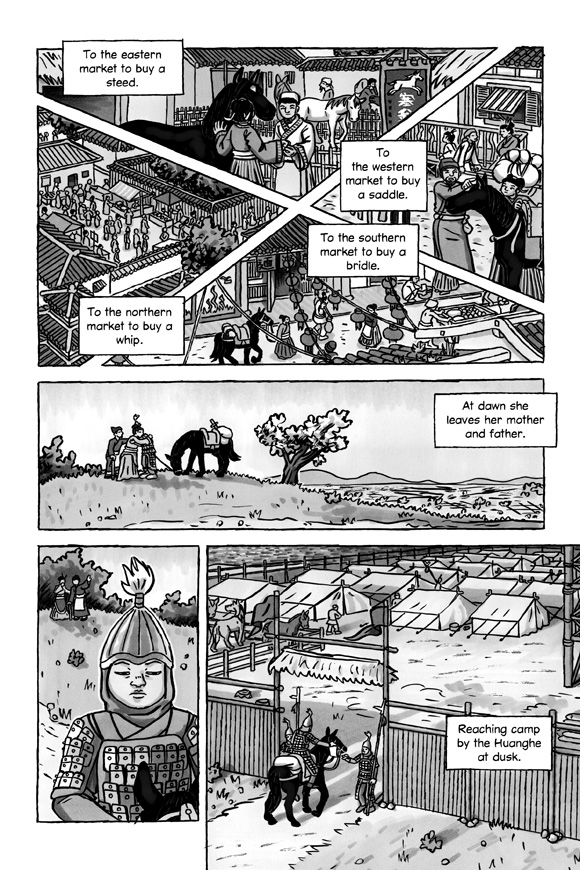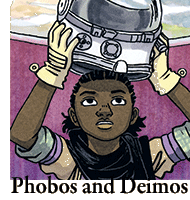The Ballad of Mulan 3
In both of the movie adaptations of Mulan, Mulan sneaks away from home to join the army. I suppose this was done as a way to maximize the dramatic tension in the story, but I much prefer the way the original poem has Mulan leave home. Namely that she does so with the blessing of her loving parents. This is first and foremost a story about duty and sacrifice for one’s family. It’s hard to justify the sacrifice if it flies in the face of duty. As a side note you’ll see there’s no training montage when she arrives at the base. This is a feudal cavalry. The king expects his gentry to be ready for combat when called for duty. Whatever the circumstances that surround Mulan’s training with horse, bow, and sword, it took place long before the draft orders reached her town.
Don’t forget, you can totes order the book that this story appears in on Kickstarter. You can even order some of my original pages! I do 90% of my work using traditional media on paper, so what you see here is pretty close to what the original pages look like. I do them in two steps: india ink on paper and then Copic markers on a high-quality photocopy of the inks. If you order an original page you get both versions.




Okay, I get that the livestock market would be a different one from the others, but why are the three leather goods, and, more importantly, the two items of riding tack, found in two different markets? Were the bridles in the western market over-priced or of a particularly poor quality?
And why a whip? If she’s volunteering to take her father’s place as a conscript, wouldn’t she be better served spending that money on a sword of a weight and balance she could use?
I know you’re just translating. I just kind of wonder if the shopping montage isn’t really something else. Maybe the Confucianists, erasing the old gods as they did, took out some ceremony to the four winds but left in the montage because it’s cool. Then later tellers turned it into a shopping montage because, chicks, amirite?
I can only guess at the mind of the author here, but keep in mind that this is a poem. And poems are nothing if not poetic. Repeating phrases for emphasis is totally a thing in Chinese poetry (it happens several times in this poem to great effect), and talking about the four directions is something you see in Chinese writing right up until the present day. It’s very Daoist. As well, traditional Chinese cities are laid out on a grid lined up with the compass. I interpret this line as being a particularly poetic and Daoist way of saying “she had to go all over town to buy the crap she needed.” If there’s more to it than that, a better scholar than me will have to find it.